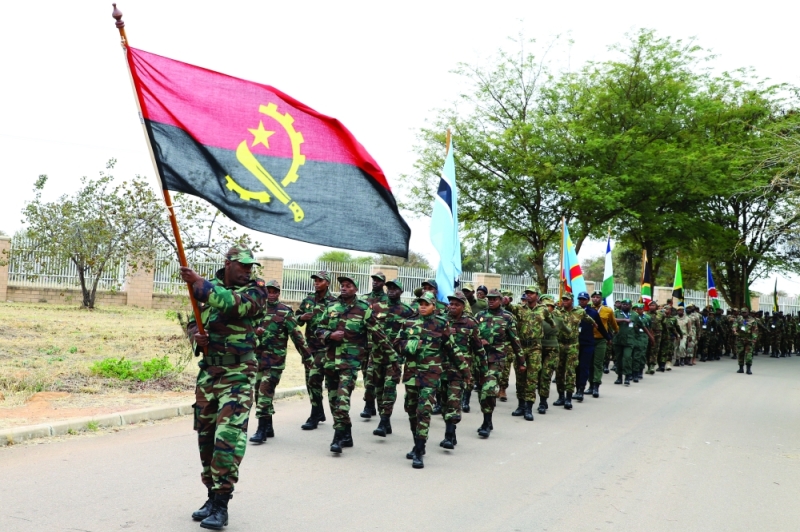SADC vows to enhance communication
Pini Bothoko | Monday July 31, 2023 06:00


The exercise involves testing the organisation’s communication and logistical support capability in the region.
Nine member states being Angola, Botswana, Lesotho, South Africa, Zimbabwe, Tanzania, Namibia and Zambia with approximately 480 participants from the member states amongst the military, police, correctional services and the civilian component are part of the exercise. Officially opening the training, Director, organ on politics, defence and security affairs at SADC, Professor Kula Theletsane at Oodi College of Applied Arts and Technology in Oodi village said there has been a lot of effort throughout the SADC command structure put into planning, developing, preparing, and executing the exercise to ensure that it meets the needs of the organisation.
He stated that the exercises ensure that forces across the alliance work together effectively whenever the need arises. “You may ask why SADC has exercises like this and why it is important. In general, the rationale for planning and executing military exercises is to prepare commands and forces for operations in peace, crisis and conflict.
Through exercises like this, SADC allied forces and partner nations and organisations can come together to train, exercise and learn from one another,” he said. He added that in doing so, the preparedness of the SADC standby force would allow it to effectively assume the continental Rapid Deployment Capability (RDC) role for peace support operations as envisioned by the declaration of the 9th AU Special Technical Committee on Defence, Safety and Security on 4th June 2016. Professor Theletsane also said the exercise should build on the lessons learnt during operations such as the SADC Mission in Mozambique (SAMIM) and increase interoperability, allow SADC to train to the same standards and easily join international security campaigns combating terrorism and other global security challenges.
“This quick ‘plug-in’ ability is a much sought after skill in a multinational campaign when reacting to emerging security challenges. It is our sincere hope that after the exercise you will be able to pin point the shortcomings and gaps that need to be looked at and improved on to make the SADC Standby Force mission ready and continue to be a viable part of the region’s conflict resolution architecture,” he said. Furthermore, he urged participants to apply their knowledge, skills, professionalism and experiences during the conduct of the training so that all may derive maximum benefit from it. He emphasised the need for participants to objectively test themselves on the level of readiness of the SADC Standby Force. Theletsane said ‘Dipuisano’ exercise will boost readiness and responsiveness overall as it an affirmation of their capabilities and capacity to evolve rapidly. Meanwhile, welcoming participants for the training, a Botswana Defence Force Officer, Oreeditse Tsamaase said Batswana are a loving and hospitable people.
“You are going to meet the most loving and welcoming people who will willingly assist you in whatever you may require. I would like to invite all Batswana to welcome delegates from our sister countries a nice stay and grant them the hospitality that they wish to be granted when they visit their countries. I believe that we are only separated by imaginary lines called boundaries while naturally we belong to one another,” Tsamaase said. Tsamaase added that the exercise has created an opportunity to catch up with their fellow breathen, strengthen their cultural and inter-personal ties as well as forging everlasting friendships which will bind us together as the African community going forward.
